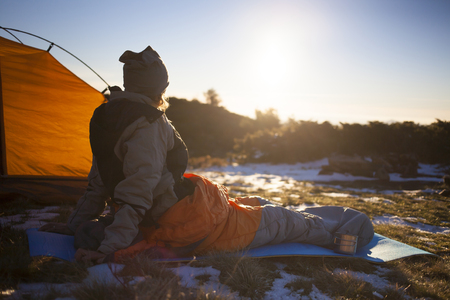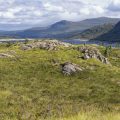Introduction to Wild Camping in the Scottish Highlands
Wild camping in the Scottish Highlands is an adventure like no other, offering a unique opportunity to immerse yourself in some of the UKs most dramatic and unspoilt landscapes. Thanks to Scotland’s progressive outdoor access laws, wild camping is generally permitted on most unenclosed land, provided you follow a few important guidelines. The Land Reform (Scotland) Act 2003 gives everyone the right to responsibly camp on hill land, which means pitching up away from roads and buildings, and always respecting the environment and local communities.
It’s vital to understand the local customs and expectations before heading out. Unlike formal campsites, wild camping requires a self-sufficient mindset and a strong commitment to Leave No Trace principles. This means taking everything you bring back with you, minimising campfire impacts (or better yet, using a stove), and ensuring that you disturb wildlife and local residents as little as possible. By adhering to these simple rules, you’ll help preserve the pristine beauty of the Highlands for future adventurers—and enjoy a true sense of freedom in this breathtaking corner of Britain.
2. Campsite Essentials
When wild camping in the Scottish Highlands, your campsite setup is critical to staying comfortable and safe in the unpredictable weather. The region is famous for its rapid weather changes—brilliant sunshine can quickly give way to howling wind and sideways rain, even in summer. As such, having robust and reliable gear for pitching up is non-negotiable.
Tents: Weather-Resistant Shelters
Your tent should be at least a three-season model, ideally with a low profile to withstand strong Highland gusts. Look for tents with a solid hydrostatic head rating (3000mm+ is recommended) to keep you dry during heavy downpours. Make sure the pole structure is sturdy—aluminium poles tend to fare better than fibreglass in rough conditions.
Sleep Systems: Warmth & Comfort
Sleeping bags rated for temperatures lower than you expect are wise; even in summer, nights can dip close to freezing. Down insulation offers an excellent warmth-to-weight ratio but ensure it has some water resistance. If you prefer synthetic bags for their resilience in damp conditions, go for reputable brands known for their build quality.
Recommended Sleeping Bag Ratings
| Season | Comfort Rating |
|---|---|
| Spring/Autumn | -5°C to 0°C |
| Summer | 0°C to 5°C |
Ground Insulation: Essential Protection
The ground in the Highlands can sap heat rapidly, especially if you’re pitched on wet or boggy land. A good sleeping mat is as vital as your bag—closed-cell foam mats are lightweight and durable, while inflatable mats offer extra comfort and insulation (look for R-values of 3 or higher).
Campsite Essentials Checklist
| Item | Why You Need It |
|---|---|
| Sturdy tent (three-season minimum) | Protection from wind and rain |
| Quality sleeping bag (season-appropriate) | Ensures warmth at night |
| Insulating sleeping mat (R-value 3+) | Keeps cold from seeping up from the ground |
| Spare pegs & guylines | For extra security in rough weather |
Top Tip:
If you’re new to wild camping in Scotland, practice pitching your tent at home before heading out—the last thing you want is struggling with unfamiliar kit when the Highland midges are out in force!
![]()
3. Clothing and Personal Gear
If you’re heading out wild camping in the Scottish Highlands, your choice of clothing can make or break the adventure. The weather here is famously fickle – you might wake to sunshine, face a lunchtime downpour, and end the evening in a chilly breeze. That’s why layering is absolutely essential for comfort and safety.
Layering for Four Seasons in a Day
Start with a moisture-wicking base layer, ideally made from merino wool or synthetic fibres to keep sweat at bay – cotton just won’t cut it in the Highlands’ damp conditions. Add an insulating mid-layer, such as a fleece or lightweight down jacket, which traps warmth without being too bulky in your rucksack.
Waterproofs: Your Best Friend
No Scottish kit list is complete without reliable waterproofs. A good quality waterproof jacket (with taped seams) and over-trousers are non-negotiable – sudden showers are part and parcel of Highland life. Even in summer, pack these as standard. Look for breathability to avoid getting clammy during strenuous walks.
Accessories to Beat British Weather Quirks
The little things matter. Pack a warm beanie or bobble hat for chilly evenings, plus a lightweight buff or neck gaiter for wind protection. Waterproof gloves will save your fingers on rainy days, while sunglasses and sun cream are must-haves for those rare but dazzlingly bright spells. Don’t forget comfy walking socks (take spares), and sturdy boots with decent grip – boggy ground is common off the beaten track.
All told, dressing smartly with versatile layers and robust personal gear ensures you’ll stay comfortable whatever the Highlands throw at you – come rain, shine, or all four seasons in one day.
4. Cooking and Food Supplies
Having the right setup for preparing food in the wild Scottish Highlands is a game-changer, especially given the unpredictable weather and remote locations. Here’s what you need to know about portable cooking kits, water purification, keeping your brew hot, and some classic British camping food recommendations.
Portable Cooking Kits: What to Bring
A compact, reliable cooking kit is essential. Most wild campers opt for lightweight stoves such as a Jetboil or Trangia, both of which perform well even in windy Highland conditions. Don’t forget to bring enough gas canisters or fuel for your trip—shops are few and far between once you’re out in the wild.
| Item | Why It’s Essential |
|---|---|
| Lightweight stove (Jetboil/Trangia) | Boils water quickly and packs down small |
| Gas canisters/fuel | Ensure you have enough for all meals and brews |
| Mess tin/pot set | For boiling, frying, and eating directly |
| Spork/multi-utensil | Saves space and weight in your pack |
| Lighter & waterproof matches | Backup fire-starting options are crucial in wet conditions |
British Camping Food Recommendations
When it comes to food, go for options that are lightweight, filling, and easy to prepare after a long trek. Popular choices among UK wild campers include:
- Porridge sachets: A warm and hearty start to the day, just add boiling water.
- Baked beans or tinned haggis: Classic comfort with a Scottish twist—tins are heavy but great for short trips.
- Couscous or instant noodles: Lightweight, quick-cook carbs perfect after a chilly hike.
- Kendal Mint Cake: A traditional British energy boost favoured by mountaineers.
- Cuppa soup packets: Warm up instantly while enjoying the view.
- Yorkshire Tea Bags: Because nothing beats a proper brew in the Highlands!
Water Purification: Stay Safe & Hydrated
The Highland streams may look pristine but always purify your water before drinking. Pack a water filter bottle (like LifeStraw) or purification tablets as backup. This not only saves weight but also ensures you stay hydrated without worry.
| Purification Method | Pros | Cons |
|---|---|---|
| Squeeze filter bottle (e.g., Sawyer Mini) | No chemicals; reusable; fast filtration | Needs regular cleaning; initial cost higher |
| Purification tablets (Aqua Tabs) | Lightweight; cheap; no moving parts | Takes 30 min+; taste may be affected |
| Boiling water (with stove) | Kills all pathogens; no extra gear needed if you have a stove | Takes time; uses fuel; must cool before drinking |
Keeping Your Brew Hot in the Wild
Nobody wants lukewarm tea when the Highland wind picks up. Invest in an insulated mug or flask—brands like Thermos or Stanley are tried-and-tested favourites with UK hillwalkers. Pour your tea or coffee straight in after brewing, and it’ll stay piping hot for hours as you enjoy the views or hunker down in your tent.
5. Navigation and Safety Gear
When you’re wild camping in the Scottish Highlands, reliable navigation and safety gear are not just handy—they’re absolutely essential. The terrain can be rugged, remote, and weather conditions often change in the blink of an eye, making it easy to lose your bearings even if you’re an experienced hiker. It’s crucial to go beyond relying on your smartphone; battery life can drain quickly in cold or wet weather, and signal blackspots are common.
Reliable Maps and Compasses
Always pack a detailed Ordnance Survey map (preferably waterproof) for your chosen area. A good quality compass is indispensable—don’t cut corners here. Familiarise yourself with basic map reading and compass skills before heading out; the Highlands aren’t forgiving if you get lost. Old-school navigation is still king up north.
GPS Devices as Backup
While traditional tools are vital, a GPS device offers another layer of security, especially in poor visibility. Many seasoned Highland campers carry handheld GPS units preloaded with local maps. If you prefer using your phone, invest in a robust case and portable power bank—but remember, electronics should always be treated as backup rather than your primary method of navigation.
Essential Safety Equipment
Safety kit should include a whistle, head torch (plus spare batteries), and a personal first aid kit tailored for outdoor injuries. Consider packing an emergency shelter or bivvy bag—weather can turn quickly, and hypothermia is a real risk even in summer months. A Personal Locator Beacon (PLB) or satellite messenger is highly recommended if you’re venturing far off the beaten track; it could make all the difference in an emergency when mobile reception vanishes.
Ultimately, preparation is key—don’t underestimate the Scottish Highlands. Ensuring you have the right navigation and safety gear will give you peace of mind and allow you to focus on soaking up those breathtaking views.
6. Eco-friendly and Legal Requirements
Staying Green on the Moors
When wild camping in the Scottish Highlands, its not just about what you pack—its how you treat the land. The moors and glens are pristine, so respecting nature is part of the adventure. Invest in biodegradable products such as soap, toothpaste, and wet wipes. These break down naturally and won’t leave a trace behind, which is crucial for keeping Scotland’s landscapes unspoilt.
Waste Management Essentials
Proper waste management is non-negotiable. Bring sealable bags to pack out all rubbish, including food scraps and used loo paper—never bury or burn them. Consider a lightweight trowel for responsible toileting; dig a small hole at least 30 metres from water sources and cover it well. A compact rubbish bag or dry sack is essential for carrying everything back out with you.
Scottish Wild Camping Do’s and Don’ts
Do follow the Scottish Outdoor Access Code: camp in small numbers, stay only two or three nights in one place, and pitch your tent discreetly away from buildings, roads, and farmland. Don’t light open fires unless absolutely necessary—use a portable stove instead to avoid damaging peatland. Always respect wildlife by keeping noise down and never feeding animals. If you stick to these do’s and don’ts, you’ll be welcomed back by both locals and the landscape itself.
7. Final Tips and Extra Comforts
Wild camping in the Scottish Highlands is unforgettable, but a few home comforts can make all the difference, especially for British campers used to a certain level of cosiness. Here are some practical extras to elevate your adventure:
Midge Protection: An Absolute Essential
Let’s be honest – midges are notorious in the Highlands, particularly from late spring to early autumn. Pack a reliable midge head net and consider a strong repellent such as Smidge or Avon Skin So Soft. A lightweight mesh shelter for cooking or relaxing can also be a game changer during peak midge hours.
Hot Water Bottles for Highland Nights
Even in summer, temperatures can drop sharply after sunset. A compact hot water bottle is a brilliant addition for chilly evenings. Simply fill it up before bed and tuck it into your sleeping bag for that comforting warmth reminiscent of home.
Handy Extras to Boost Your Comfort
- Portable Camp Chair or Sit Mat: After long hikes, having something soft to sit on beats perching on damp grass or cold stones.
- Pegless Clothes Line: Great for drying socks or base layers if you get caught in Scottish rain (which is always a possibility).
- Reusable Hand Warmers: Perfect for warming up cold fingers after a sunrise brew or evening cuppa.
Keep It Local, Keep It Cosy
A flask of proper British tea, some shortbread, and perhaps your favourite book can add those small moments of joy that turn a wild camp into a cherished memory. With thoughtful preparation and these extra touches, you’ll be ready to experience the best of the Highlands – whatever the weather throws at you.


